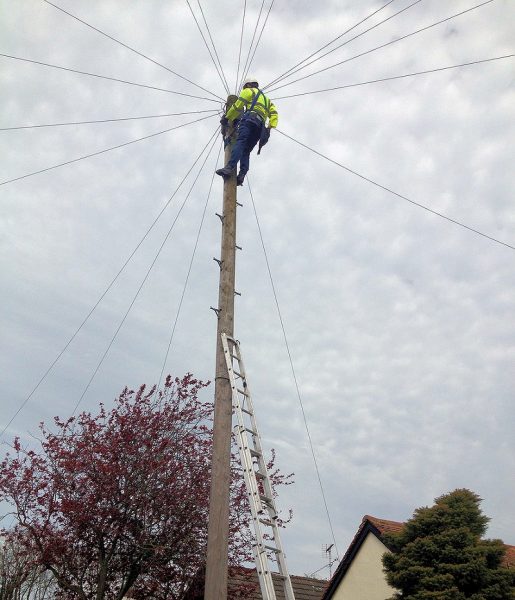Ofcom Provisionally Clears Openreach FTTP Broadband Price Cut

As expected Ofcom, the UK telecoms regulator, has today launched a final consultation on Openreach’s (BT) recently proposed plan to introduce a “major” change to the wholesale pricing of their gigabit-capable Fibre-to-the-Premises (FTTP) broadband products for ISPs (details), which could result in cheaper prices for consumers.
Ofcom’s recently revised rules (here) require Openreach to give them 90 days’ notice of such changes, partly so they and the market have time to assess the impact on competition and other factors. As a result, the discounts themselves aren’t currently planned to go live until 1st October 2021, assuming the regulator grants approval.
As part of that, the regulator has today launched a new consultation on the proposed pricing, which will run until 6th September 2021. Some alternative network (AltNet) providers (Cityfibre, Virgin Media [VMO2], KCOM and Fern Trading etc.) have already raised concerns about a potential anti-competitive impact on their rival builds and investments, which are often in a weaker position than those of the incumbent.
Advertisement
Naturally, providers that are much more reliant on Openreach’s services (e.g. TalkTalk, Sky Broadband and Vodafone) were marked as being “generally supportive of the Equinox Offer.” In fact, TalkTalk even tried to assert that the wholesale prices were still too high – “TalkTalk submitted that the discounted prices under the Equinox Offer are substantially above cost, leading to consumer detriment.”
However, so far, Ofcom’s provisional view seems to be that there is no cause for alarm. “Having assessed the offer, and taken account of stakeholders’ initial views on it, our provisional view is that we should not take any action at this time,” said Ofcom. A final decision (statement) is expected to be made by the end of next month.
Ofcom’s Full Provisional View
Our provisional view is that we should take no action at this time.
In reaching our provisional view, we have considered the impact on competition. For the reasons set out above, provisionally we do not consider that the Equinox Offer will have a material adverse impact on competition. We have also considered the impact on different stakeholders:
a) Citizens and consumers: Our provisional conclusion is that the Equinox Offer is consistent with promoting investment in gigabit-capable networks by Openreach and other operators and promoting network-based competition, ultimately delivering better consumer outcomes.
b) Altnets: As a result of the Equinox Offer, altnets are likely to face stronger competition from Openreach. However, we provisionally conclude that the Order Mix Targets and forecasting requirements do not create a potential barrier to using altnets and that the New-to-network Discounts do not raise concerns in terms of targeting or their impact on altnet build. As a result, our provisional conclusion is that the Equinox Offer is consistent with network-based competition.
c) ISPs: We consider that ISPs are likely to benefit from network-based competition. As explained above, we provisionally conclude that ISPs will continue to be free to use altnets where they wish to do so.
d) Openreach: We consider that not preventing Openreach from introducing the Equinox Offer allows it to engage in network-based competition, without compromising our objective of promoting investment in gigabit-capable networks.
In reaching our provisional view, we have had regard to our duties under sections 3 and 4 of the Communications Act 2003. We have also had regard to Government’s Statement of Strategic Priorities.
Finally, Ofcom pointed out that “all prices under the Equinox Offer are therefore set at a level above our estimate of the price that an altnet would need to charge in order to recover its efficiently incurred costs.” On top of that, they also highlighted how their “analytical framework is concerned with the promotion of competition rather than the protection of competition as under competition law.”
Openreach’s new gigabit-capable FTTP network currently covers 5.16 million UK premises and their £15bn investment should see that reach 25 million by December 2026 (c.80% of the UK), which will include c.6.2 million premises in rural and semi-rural areas.
Advertisement
Mark is a professional technology writer, IT consultant and computer engineer from Dorset (England), he also founded ISPreview in 1999 and enjoys analysing the latest telecoms and broadband developments. Find me on X (Twitter), Mastodon, Facebook, BlueSky, Threads.net and Linkedin.
« Vodafone UK Pro Broadband Gets Super WiFi with Alexa Built-in UPDATE
ISP BT Makes UK FTTP Home Broadband Packages Even Cheaper »





















































I assume this will have no effect on the price of my BT supplied FTTP broadband?
It may do eventually. There is competition at the retail level, and a reduction in underlying costs gives scope for market grab.
I would expect to see price pressure first at the top end (gigabit), because there’s actually very little difference in the OR wholesale pricing between the different speed bands.
e.g. under the new proposed wholesale pricing: 80/20 is £14.75, 300/50 is £19.00, 1000/110 is £22.00.
There are backhaul costs too, but most gigabit users don’t consume *that* much more traffic on average – they just like the higher burst speed.
How much will the backhaul cost for a couple of 20Mb/s UHD streams when becomes the norm during the lifetime of this offer?
How does that compare to retail price?
As if by magic: https://www.ispreview.co.uk/index.php/2021/08/isp-bt-makes-uk-fttp-home-broadband-packages-even-cheaper.html
Regarding the cost of backhaul to support 2x20M UHD streams: it doesn’t really factor in to the question here, since it would be the same whether you’re on a 40M product or a 1000M product.
In any case, there are plenty of households left full of old-timers like me who barely notice the difference between SD and HD, let alone UHD.
Given this is Openreach pricing not their problem, lolfibre.
Backhaul pricing is entirely different to this and is sold on flat rate 1 and 10G ports. Once that is done they’re outside of Openreach control. The Openreach product ends at the other side of the Cablelink and that is a flat rate interconnect.
If paying BT Wholesale to collect it all together and present it of course there’ll be an additional cost however this is nothing to do with this promotion.
Ask TalkTalk Business the rates they’re charging per Mb/s/month for more.
I pay Faelix 57p/Mb/s/month billed on 95th percentile for my service from them as we agreed. I would imagine they are paying somewhat less to their suppliers.
Finally, Ofcom pointed out that “all prices under the Equinox Offer are therefore set at a level above our estimate of the price that an altnet would need to charge in order to recover its efficiently incurred costs.”
So why are they complaining if they can still get their investment back and also a margin above that in addition to having an ongoing business?
The altnets got their money based on previous market state and ofcom making up numbers does not mean anyone would invest on those new numbers given the risk of OR overbuild. This is a good way to wreck altnets, now they have served their purpose of making OR do what ofcom wants they can be trashed.
The alnets have been making their services attractive by offering higher speeds for not much more than OR based sub 100M prices, this enables OR resellers to counter that. That’s superficially good for consumers but making things needlessly cheap is to force the market to favour those who can scale to pile it high sell cheap, consolidation coming soon. That is what held the market back from being investible to do fibre previously, OR want to return to that while taking credit for reduced pricing.
It’s one thing telling Cityfibre to suck it up but it’s worse for small altnets and rurals where the lower cash flow from market forced reduced subscriber fees is a killer. This is the goal here, to starve them out from daring to build. Expect 12 months 5quid offers returning from OR resellers, which any altnet is not allowed to do as DCMS will claim they are using vouchers to subsidise retail pricing.
It is a shame that backhaul costs are not considered, the tail price is dwarfed for the by backhaul for any reasonable use of the higher speeds. The tail costs are not the real problem if you want to resell OR.
Is there a scenario where AltNets wouldn’t object to Openreach price reductions?
@lolfibre
So you are saying that every Openreach FTTP customer should have to pay an false forced high price for their services to make sure that some alt net doesn’t go out of business due to the alt net’s inability to make its own business plan work? So Openreach customers cross subsidies competitors.
And then what is an alt net? Is it anyone who isn’t Openreach so CityFibre and Virgin get to undercut Openreach without any competition issues?
The alt nets are not so cuddly ideal that wants to serve others for the good of it. They are , by and large, serious commercial organisations who want to make the largest profits for their owners.
If any alt net has rolled out to customers then they have the first mover advantage over any other compayn1 which follows later. Given that most people did not move ISPs then they should be able to retain customers and make their business work. And if it takes a few more years to get back the initial investment well that’s life. Infrastructure projects are a long term plan and the money will be there. Look at the gas/electricity/water networks to see that a good profit can be made.
@Ben
No I cannot think of one. CityFibre are happy to sign up ISPs who use their service to sell 900Mbps at £36pm but don’t like the idea that Openreach will enable their ISP customers to do likewise.
I left a comment earlier about BT and the equipment, I am the first in my area to have full fibre installed, the equipment in the exchange were switched off.
I can’t see them digging up 100mts of our private concrete road to kay fttp to my house or 50 mts through our garden from the main road to lay fibre to the house !
You could lay some duct, that might help.
I don’t think it was intended as a joke but using the phrase ‘its efficiently incurred costs’ is comedy Gold when comparing to Openreach